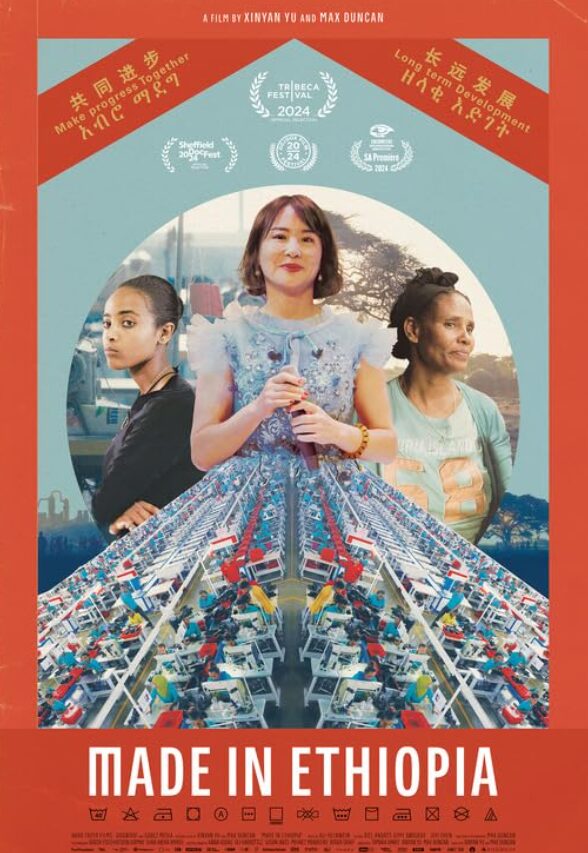Film Review: Made in Ethiopia
Rating: 4 stars out of 5

Made in Ethiopia is one of those quietly powerful documentaries that doesn’t need to shout to make its point. Directed by Max Duncan and Xinyan Yu, the film takes us deep into the shifting landscape of Dukem, Ethiopia — a small town being reshaped by the presence of a massive Chinese industrial park. What unfolds is a layered, deeply human portrait of globalization told through the intertwined lives of three women.
At the heart of the film is Motto Ma, the sharply focused Chinese director tasked with bringing the industrial park to life. She’s driven, pragmatic, and walking a tightrope between business ambitions and cultural dissonance. Then there’s Beti Ashenafi, a young Ethiopian woman just trying to build a future, working long hours on the factory line while dreaming of something more. And finally, there’s Workinesh Chala — a farmer whose land was taken to make way for “development.” She’s proud, resilient, and quietly devastated.
What makes Made in Ethiopia stand out is how it captures the complexity of change. It doesn’t reduce its subjects to simple symbols or moral lessons. Instead, it allows contradictions to live on screen: progress and loss, opportunity and exploitation, hope and heartbreak. The film is visually striking, with scenes that contrast harsh industrial settings against Ethiopia’s rich rural and cultural backdrops. Every frame carries weight, whether it’s a slow pan across a factory floor or an intimate moment during a family ritual.
For Kenyan audiences, this story hits close to home. As Nairobi and other cities continue to expand, and foreign-funded infrastructure projects rise across the country, questions about who benefits from “development” — and who is displaced — are more relevant than ever. The dynamics of land, labour, and livelihood echo strongly with ongoing conversations about urban gentrification, SGR projects, and our own growing economic entanglement with China.
This is not a documentary that offers easy answers. There’s no preachy narrator, no forced conclusions. Just real people, navigating real stakes, caught in the gears of something much bigger than themselves. And in that restraint, the film finds its power.
Made in Ethiopia is a must watch. It’s not flashy, but it lingers — in your mind, in your conscience, in the questions it raises long after the credits roll.
SCREENING NOW AT UNSEEN NAIROBI
Reviewed by the iN NAIROBI team
For more sharp takes on African film and culture, head to innairobi.com


